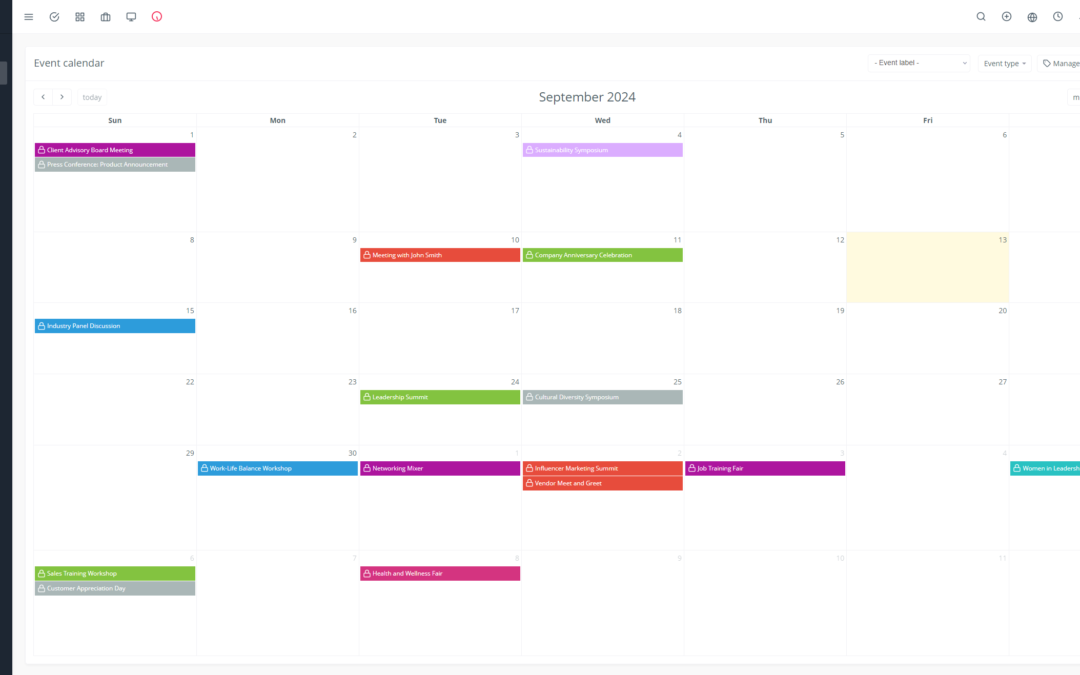In today’s ever-evolving digital landscape, data has become the gold standard for businesses. For agencies, in particular, managing customer information is crucial to their success. Customer Relationship Management (CRM) has become an indispensable tool for centralizing and leveraging this data.
But with the proliferation of sensitive data, the issue of data security in CRMs takes on paramount importance.
📈 The Need for Data Security in CRMs
CRMs store vital information about your clients: contact details, purchase history, preferences, and more. A breach of this data could have disastrous consequences for your agency:
Loss of customer trust 💔
Reputation damage 📉
Fines and legal action ⚖️
Loss of revenue 💸
⚠️ The Risks of Data Breaches in CRMs
Security threats are numerous and varied. Some of the most common risks include:
Phishing and malware attacks 🎣
Human error 👨💻
Unauthorized access 🚫
Data leaks 💧
🛡️ Best Practices for Securing Client Data in CRMs
To protect your data, it’s crucial to adopt a proactive approach:
1. Choose a secure CRM:
Data encryption 🔒: Ensure the CRM uses end-to-end encryption to protect sensitive data.
Multi-factor authentication (MFA) 🔐: Strengthen account security by using MFA for CRM access.
Granular access controls and permissions 🔑: Restrict data access based on roles and responsibilities.
2. Implement technical security measures:
Firewall 🛡️: Protect your CRM from external attacks.
Intrusion prevention and detection systems (IPS/IDS) 🕵️♂️: Monitor suspicious activity and block intrusions.
Data backup and recovery 💾: Create regular backups to restore data in case of loss.
3. Train your staff on data security:
Educate employees on security best practices 🧠
Establish protocols for security incidents 🚨
4. Comply with data protection regulations:
GDPR (General Data Protection Regulation) 🇪🇺
CCPA (California Consumer Privacy Act) 🇺🇸
5. Protect sensitive client data:
Financial information 💳
Health information 🏥
💡 Data Protection Regulations Compliance
Regulations like GDPR and CCPA impose specific requirements on businesses regarding the protection of personal data. Ensure you meet these requirements to avoid costly penalties.
🔒 Protecting Sensitive Client Data
Some data is particularly sensitive, such as financial and health information. This data should be protected with extra care.
👨💻 Training Staff on Data Security
Staff are often the weakest link in security. Train your employees on security best practices to minimize the risk of human error.
🔑 Access Control and Permissions
Restricting data access to authorized individuals is essential. Use access control systems and granular permissions to ensure data security.
🛡️ Implementing Technical Security Measures
Using security technologies such as encryption, firewalls, and intrusion detection systems strengthens data protection.
📊 Monitoring Security Activities and Events
Continuously monitor security activities and events to quickly detect anomalies and potential threats.
✅ Regular Security Auditing
Conduct regular security audits to identify vulnerabilities and improve protection measures.
🚨 Security Incident Management
Establish clear protocols for managing security incidents and minimizing the impact on data and the business.
🧰 Data Security Tools and Technologies
Dedicated security tools and technologies can help you secure your data and CRM.
📈 Benefits of Using a Secure CRM
Using a secure CRM offers many advantages:
Protection of sensitive data 🔒
Building customer trust 🤝
Reducing the risk of data breaches 📉
Regulatory compliance ⚖️
Improving the agency’s reputation 🌟
🌟 Impact of Data Security on Agency Reputation
A data breach can severely damage your agency’s reputation. Customer trust is vital for the success of any business.
🤝 Customer Trust and Brand Protection
Data security is a key factor in earning customer trust. By protecting personal data, you build customer confidence and loyalty.
💻 Cybersecurity Best Practices for Agencies
Establish a data security policy 📝
Train staff on security best practices 🧠
Use a VPN for remote connections 🌐
Regularly update software and the operating system 🔄
Protect mobile devices 📱
📚 Additional Resources for Data Security in CRMs
NIST Cybersecurity Framework 🇺🇸
GDPR (General Data Protection Regulation) 🇪🇺
CCPA (California Consumer Privacy Act)* 🇺🇸
In conclusion, data security is a top priority for agencies. By implementing robust security measures, you can protect your data, build customer trust, and ensure your agency’s long-term success.

